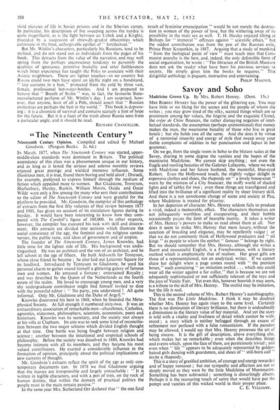A Pole in Russia
13ooics about Russia written by Poles have a quality which dis- tinguishes them from the writings of other nations on this subject. They are pervaded by a sense of national tragedy which is outside the experience and beyond the comprehension of nearly all of us, and A Reluctant Traveller in Russia is no exception to this rule. The book records its author's experiences between his escape east- ward from German-occupied Warsaw and his re-emergence some years later across the Caspian in Persia as a member of General Anders' Army.
When Mr. Wittlin states that " the nightmare reality of a Soviet prison is not easily grasped by the mentality of a Briton," we should accept the veiled reproach while being grateful for the allowances which he makes for us. But it is hard to decide whether the case which he makes by implication is strengthened or not by the allega- tion that a British censor was prepared to suppress written refer- ences to a British sergeant, known to be in Russian hands, in order not to " upset our great Ally." There is real poignancy in his account of Polish refugees giving the clenched-fist salute to impassive Soviet sentries as they trudged eastward into the Russian Zone of their freshly-partitioned country. And the author gives us some vivid pictures of life in Soviet prisons and in the Siberian camps. In particular, his description of fire sweeping across the tundra is quite magnificent, as is the fight between an Uzbek and a Kirghiz, preceded by a succession of shrewdly-graded obscenities which culminate in the final, unforgivable epithet of " Intellectual."
But Mr. Wittlin's characters, particularly his Russians, tend to be stylised, and do not stand out as individuals from the pages of his book. This detracts from the value of the narrative, and may well spring from the perhaps unconscious tendency to personify the qualities of ignorance, primitive brutality and utter faithlessness w.-lich bitter experience has taught the Poles to associate with their Asiatic neighbours. There are lighter touches—in no country but Russia could two men have spent an idyllic night on a bandstand, " like currants in a bun," protected from the cold by three vast, female, professional hot-water-bottles. And I am prepared to believe that " Breath of Stalin " was, in fact, the favourite State- manufactured perfume of Mr. Wittlin's day. I am surprised, how- ever, that anyone, least of all a Pole, should assert that " Russian orchestras are perhaps the best in the world." This book is depress- ing; it is a chronicle of survival and contains scarcely a hint of hope for the future. But it is a facet of the truth about Russia seen from a particular angle, and it should be read.
RICHARD CHANCELLOR.



































 Previous page
Previous page